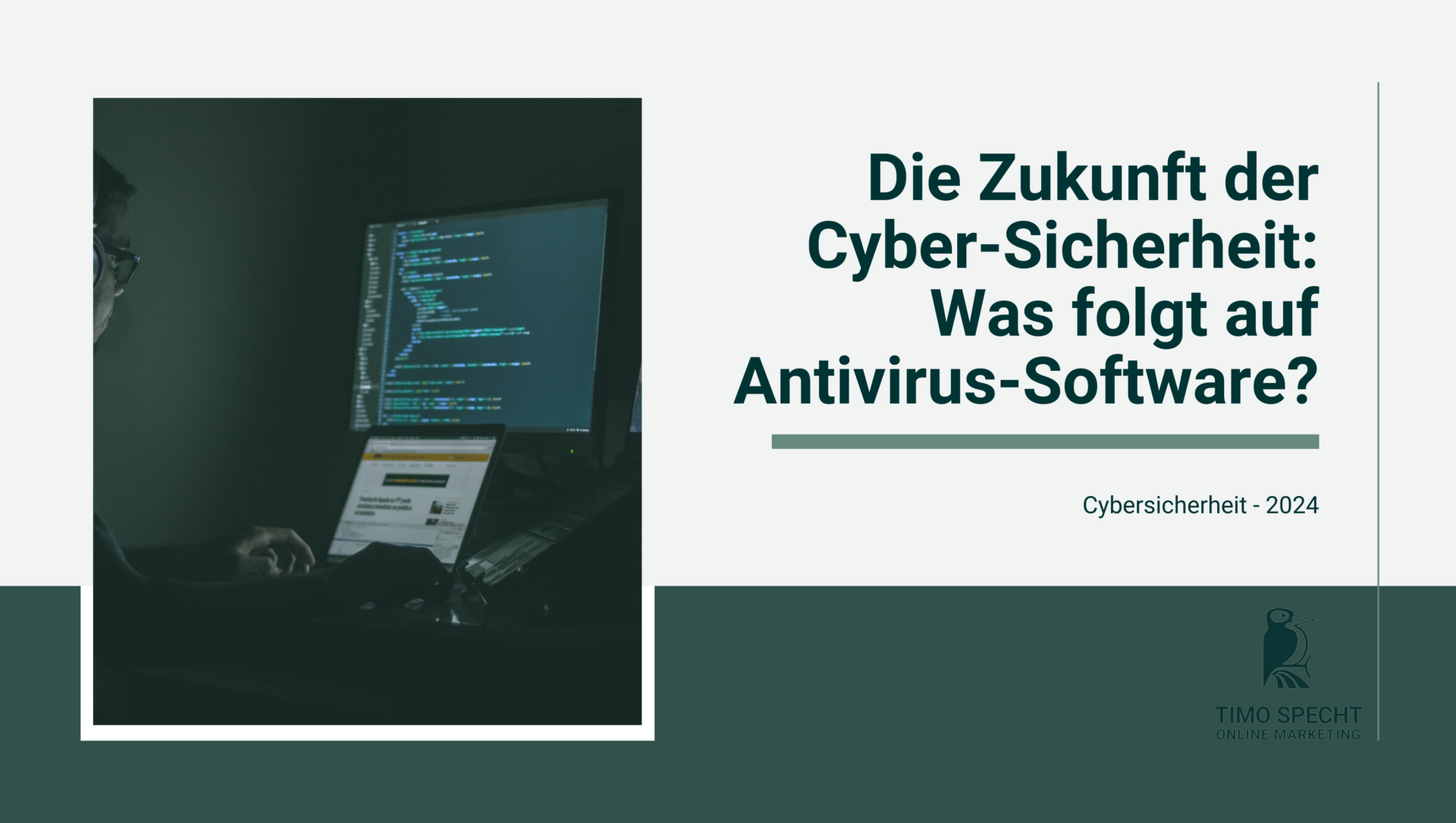Data - the gold of the digital age in the focus of cyber criminals
Anyone who sets up a company and wants to conduct a significant part of their business activities on the Internet follows a tried and tested pattern: It starts with a new product or an innovative service. The budding entrepreneur develops a sales strategy and carries out search engine optimization - often with the help of an SEO agency - so that potential customers can find the website. When the young company generates its first sales, the goal has been achieved. In the face of such successes, cyber security is sometimes overlooked. Isn't a young company far too uninteresting to become the target of cyber criminals? As a result, entrepreneurs save money on the SQL Server license, for example, and forgo useful security features.
Young entrepreneurs regularly fail to realize that it is start-ups in particular that have innovative ideas in which criminals have an interest.
Private users are not safe from cybercriminals either: they are particularly exposed to threats from ransomware. This is a type of malware that encrypts the data on the victim's end device and (if the criminal is merciful) only releases it again after a ransom has been paid. Private users are therefore at risk of losing access to sensitive files, which are often linked to valuable memories. For example, anyone writing a thesis on their PC who falls victim to a cyberattack could, in the worst-case scenario, face disadvantages in their future life if they miss a deadline due to the attack. This means that users who mainly use Office programs on their end devices are also a target for cyber criminals. As more and more private individuals use smartphones and computers and mainly store their data on their own hard drives, the number of ransomware attacks will also increase in the future.
-
Free
SEO strategy meeting
In a free SEO strategy consultation, we uncover untapped potential and develop a strategy to make you more successful on Google.

- More organic visibility
- More organic visitors to your website
- More inquiries & sales
Unmanageable number of threat scenarios
A study by the digital association Bitkom found that 84% of German companies were the target of hacker attacks in 2021. In most cases, the attackers stole stored data or carried out other illegal activities that can be classified as industrial and economic espionage.
In the worst-case scenario, according to the experts, the number of cases will increase tenfold by 2025.
It should be borne in mind that the political and economic conditions have deteriorated since 2021. Security experts are therefore increasingly focusing on hacker groups that are presumably working on behalf of foreign governments. With increasing geopolitical tensions in Eastern Europe and the Far East, there are fears that public institutions could increasingly become the target of cyber criminals or cyber terrorists.
In addition to these political and economic reasons, further developments in the field of information technology are likely to exacerbate the threat situation. These include, first and foremost, AI technologies and the expansion of the "Internet of Things". Artificial intelligence enables the rapid development and adaptation of malware, to which IT security companies can only react with a delay. The Internet of Things makes people's everyday lives more susceptible to disruption by cyber criminals.
The future of cyber security - has the virus scanner had its day?
IT security in Germany is currently facing challenges that are not only the result of the increasing professionalization of hacker groups, some of which are financed by the state. Despite the expected technical innovations in the field of cyber security, IT security companies need workers. However, the shortage of skilled workers does not stop at the IT sector: the labor market for experts such as penetration testers, administrators and IT forensic experts is thinning out on the supply side. Small and medium-sized companies are finding it difficult to compete for specialists. Highly qualified workers are drawn to world-class IT corporations, while SMEs are left behind.
The future of cyber security - especially in Germany - therefore depends to a large extent on whether we succeed in filling the vacancies in the IT sector with specialists. The task is undoubtedly complex and requires not only the recruitment of experts from abroad but also a fundamental change of direction in schools.
AI technologies are currently particularly inspiring in the creative sector. Innovations in the field of artificial intelligence also represent an opportunity for the IT security sector. Although IT security experts currently see a lot of potential in AI, they point out that further progress is required before these technologies can develop reliable security solutions.
Current AI technologies are best suited to automated monitoring, which compensates to a small extent for the lack of specialist staff.
Security information and event management systems also represent a promising approach to improving cyber security. These systems are a combination of various tools that detect suspicious activities faster than humans can.
As things stand at present, it can be assumed that these new technologies will make tried-and-tested virus scanners and firewalls obsolete - at least in their current form.
- I am one of the leading SEO experts in Germany
I am known from big media such as Stern, GoDaddy, Onpulson & breakfast television and have already worked with over 100+ well-known clients successful on Google.
Google rating
Based on 185 reviews
Trustpilot rating
Based on 100 reviews
Cybersecurity for hybrid IT solutions
Digitalization is fundamentally changing the world of work. Since the coronavirus pandemic at the latest, employees have increasingly been working from home or from other locations outside the office. This trend is influencing IT security requirements, as hybrid IT solutions, in which resources stored locally and in the cloud are connected, require new types of security concepts.
Hybrid solutions are both a blessing and a curse for employers: they make it possible to reduce operating costs for commercial real estate and provide employees with a better work-life balance. The latter is an indispensable feature in order to compete for skilled workers. At the same time, these hybrid solutions make the company's own IT infrastructure more susceptible to cyberattacks.
In future, operational security concepts for IT must therefore not only focus on data stored locally and in the company's own cloud. They must also ensure that employees' end devices are not compromised. In this context, protection against man-in-the-middle attacks is likely to become increasingly important. In this type of cyber attack, the attacker interposes himself between two communication participants in order to intercept and/or manipulate the communication. Especially in the age of fake news, the possibilities of manipulation pose a serious risk to the security and integrity of companies and public institutions.
Here too, AI technologies can help to identify suspicious activities before important data is stolen or altered.
- Do you know my SEO newsletter?
Register now and receive regular tips from the experts.
The IT security of the future
The number of cyberattacks will most likely increase in the coming years. It can be assumed that AI technologies will play a central role in defending against these threats. IT experts also assume that firewalls and virus scanners in their current form will disappear from the market in the next few years.

